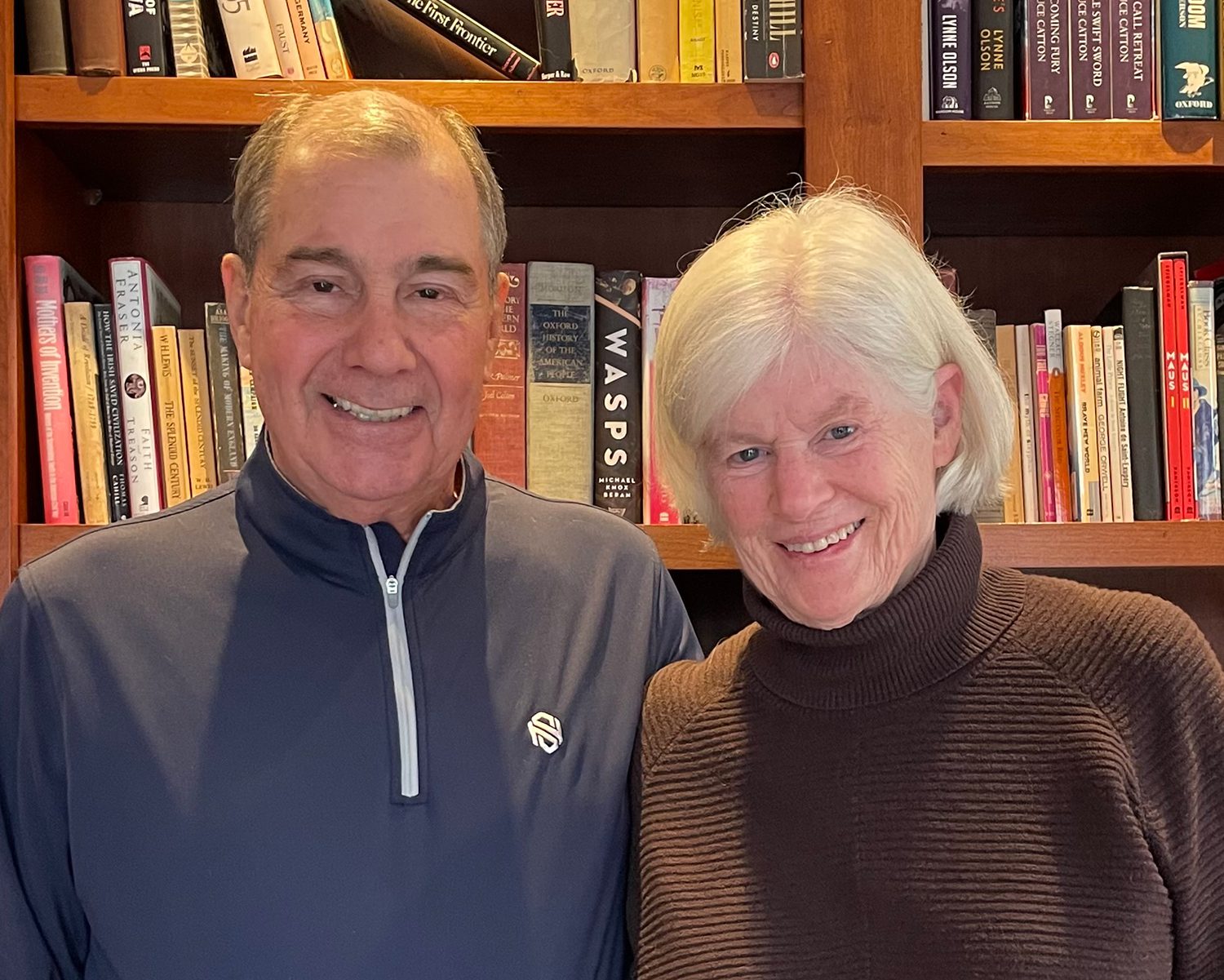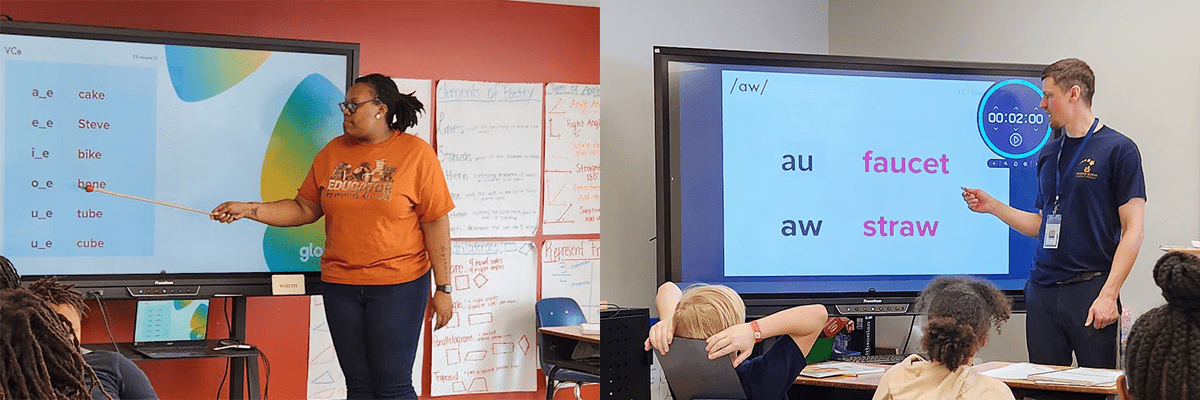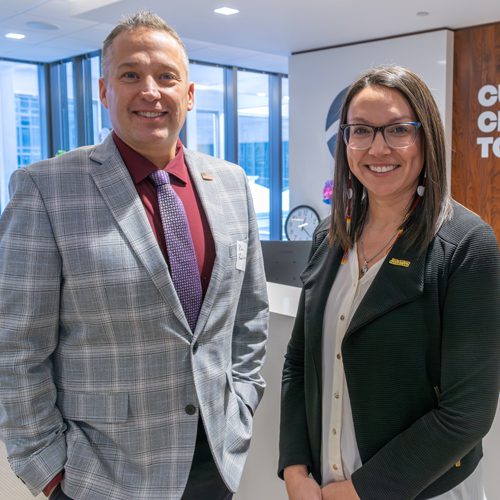A Powerful Approach to Reading

Liz and Van Hawn used their Donor Advised Fund at the Minneapolis Foundation to help Groves Literacy Partnerships launch a new pilot project that helps students learn to read.
When Liz Hawn was growing up, one of her brothers had severe dyslexia. “He struggled hugely,” she recalled. Back then, the condition wasn’t well understood, and the adults who tried to help had trouble figuring out what was going on. What pulled him through, aside from intelligence, was sheer determination. “He was amazingly diligent,” Liz said. “He got so he could read, but he would sound out words, and he would look things up—word after word after word—in the dictionary.”
“I remember looking at him doing his homework and thinking, ‘I could never do that.’” — Liz Hawn
 Photo: Liz Hawn and her husband Van
Photo: Liz Hawn and her husband Van
Liz’s brother eventually became an engineer, but the challenges he faced as a young reader stayed with her. Her passion for literacy only grew over the years as she became a mother, volunteer tutor, and nonprofit board member. Today, she and her husband, Van, have a Donor Advised Fund at the Minneapolis Foundation that they have used to support a variety of education causes—including a trailblazing pilot project at Groves Literacy Partnerships that launched this school year.
Especially after the pandemic, Liz wanted to support an organization that helps students who are struggling to read. She reached out to her Philanthropic Advisor, who worked with the Foundation’s Impact department to help her identify a local nonprofit focused on literacy and reading intervention.
“Liz came to us with a lot of experience as a reading tutor and a strong interest in supporting evidence-based approaches to literacy instruction,” said Patrice Relerford, the Foundation’s Vice President of Collective Giving and Impact. “Groves Literacy Partnerships has been helping metro-area schools do this work for years, so we felt they might be a great fit for Liz’s philanthropic goals.”
The Foundation introduced Liz to Katharine Campbell, the director of Groves Literacy Partnerships. When they met, they found their ideas aligned.

Photos courtesy of Groves Literacy Partnerships
Groves offers curriculum and coaching to help teachers head off trouble with reading before it starts, delivering high-quality instruction for students in kindergarten through third grade. This year, the organization is working with about 85 metro-area schools.
Increasingly, though, Groves was hearing from school principals who also wanted resources for older students who had already fallen behind. “Liz was excited that we were thinking about those students past third grade, because there was a whole bucket of them that weren’t getting their needs met,” Katharine said. Groves had just created an intervention program for older students and had started writing intensive lessons for those with learning disabilities such as dyslexia.
With support from the Hawns, Groves is taking its work to the next level. This school year, the organization launched a pilot project in about ten classrooms at a handful of schools. The pilot focuses on helping kids catch up, but there’s a twist: Most reading intervention programs are designed for small groups of students who are pulled out of class to work with a specialist, but Groves is piloting its resources in several different ways. Some teachers deliver the lessons to groups of less than six students, some to groups of up to 15, and some to entire classrooms.
The project is raising exciting possibilities about how Groves’ curriculum could be adapted to reach more kids. Liz’s generosity is doing more than helping students in those ten classrooms, Katharine explained.
“It’s allowing us to figure out how to implement this intervention program into bigger groups so we can impact more students who are struggling and get them back on track.” — Katharine Campbell, Director of Groves Literacy Partnerships
The schools will collect more data this spring, but already, she said, “what we’re hearing anecdotally is that this is the connection that students need to really start to become fluent readers, writers, and spellers.”
The need for high-quality reading intervention has only grown since the pandemic, when distance learning led to deep setbacks for students nationwide. The youngest readers who were hit hard by the disruptions of COVID are now in second grade. “We’re going to have a big impact on those COVID babies,” Katharine said.
In addition to multi-year support from the Hawns, Groves has received grants through the Minneapolis Foundation’s Reimagine Education initiative. “It’s exciting to see the relationship blossom between the Hawns and a nonprofit that we know is doing such important work in the community,” said Amy Pfarr Walker, the couple’s Philanthropic Advisor. “The project they’re funding is a terrific example of how our fundholders not only support great organizations but enable them to experiment and evolve.”
—
Inspired to support Groves? You can! Visit the organization’s website to learn more about their work.

